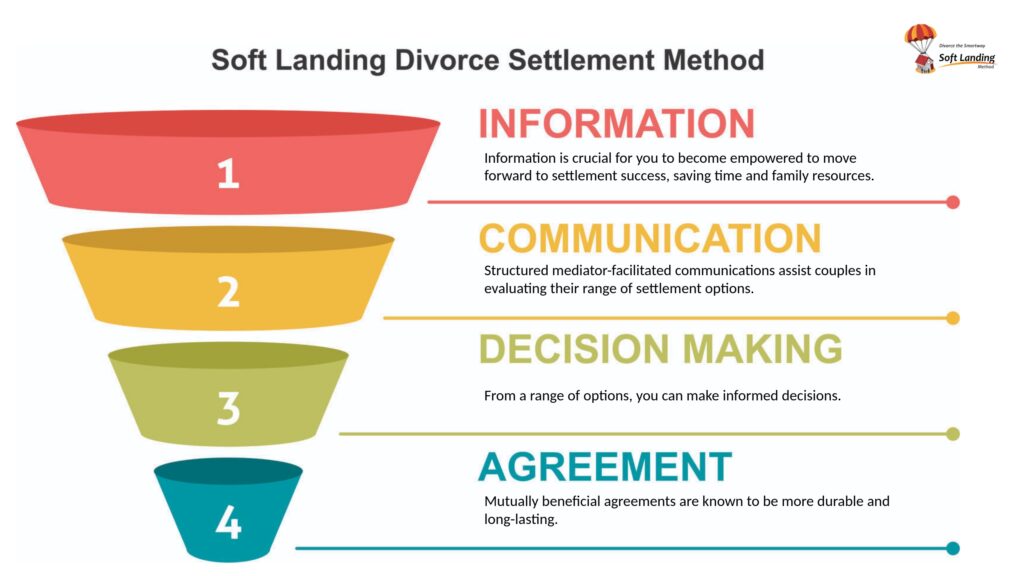Navigating the Canada’s Adversarial System vs Alternatives

The adversarial legal system is primarily used in common law jurisdictions across the English-speaking world
The adversarial system forms the foundation of legal proceedings in countries that follow common law traditions. This approach to justice is most prominently featured in:
- Commonwealth nations, including Canada, Australia, and New Zealand
- The United Kingdom, where the system originated
- The United States, which adopted and adapted the British model
- Various former British colonies and territories that maintain common law systems
In these jurisdictions, court proceedings operate as a structured debate between opposing parties, with judges serving as impartial arbiters rather than active investigators—a key distinction from the inquisitorial system used in many civil law countries.
The adversarial system emerged in medieval England during the 12th century and remains foundational to modern common law
The adversarial legal system developed from Norman traditions after the conquest of England in 1066. This system replaced earlier methods of dispute resolution, establishing a formal process where opposing parties present their arguments before an impartial judge. Today, it forms the basis of legal proceedings in most common law jurisdictions, including Canada, the United Kingdom, and Australia.
- Replaced trial by ordeal and combat in the 12th-13th centuries
- Introduced professional advocates and structured court procedures
- Established principles of evidence presentation and cross-examination
- Evolved to include jury trials and judicial independence
The adversarial system relies on opposing parties presenting evidence, while the inquisitorial system is judge-driven investigation
The adversarial system, used in Canada and other common law countries, operates like a structured debate where two opposing sides present their arguments before an impartial judge or jury. In contrast, the inquisitorial system, common in European countries, puts the judge in an investigative role.
Key differences between the systems include:
- In the adversarial system, lawyers control evidence presentation and witness examination
- The inquisitorial system gives judges primary responsibility for gathering evidence and questioning witnesses
- Adversarial proceedings are more competitive and confrontational by design
- Inquisitorial courts focus more on fact-finding than procedural contests
- Canadian courts use the adversarial model but may incorporate some inquisitorial elements in specialized courts
The adversarial system promotes justice through balanced representation and thorough evidence examination
The adversarial legal system serves as a cornerstone of Canadian justice by ensuring fair and comprehensive legal proceedings. This system operates on the principle that truth emerges best through structured opposition.
Key advantages include:
- Thorough evidence examination – Each side can challenge and scrutinize evidence, helping reveal the full truth
- Equal representation – Both parties have the same opportunity to present arguments and evidence
- Impartial judgment – A neutral judge or jury makes decisions based on presented facts
- Quality of arguments – Competition between opposing sides encourages thorough preparation and strong legal reasoning
- Procedural fairness – Clear rules and procedures protect the rights of all participants
The adversarial system involves two opposing parties presenting their cases before an impartial decision-maker
In Canada’s legal system, the adversarial process functions as a structured legal debate where each side presents their strongest case. A neutral judge or jury serves as the impartial adjudicator, evaluating evidence and arguments to reach a fair decision.
- The prosecution/plaintiff presents their case first, including evidence and witnesses
- The defence/defendant responds with counter-arguments and their own evidence
- Both sides can cross-examine witnesses and challenge evidence
- The judge ensures proper legal procedure and rules on objections
- The final decision is based on the merits of arguments and evidence presented
Contact a certified family mediator or collaborative law professional to begin the dispute resolution process
Starting family mediation or collaborative law involves reaching out to qualified professionals who can guide you through the process. A certified family mediator or collaborative law lawyer will help assess your situation and determine the most appropriate path forward.
The initial steps typically include:
- Scheduling a consultation to discuss your specific situation
- Having both parties agree to participate in the chosen process
- Reviewing costs, timelines, and expected outcomes
- Gathering necessary documentation and information
- Setting up the first joint session with all involved parties
Many professionals offer free initial consultations to help you understand your options and determine if mediation or collaborative law suits your family’s needs.
Alternative dispute resolution methods include mediation, collaborative law, and arbitration for resolving family law matters outside of court.
Family law disputes can be resolved through several non-adversarial approaches that typically offer more flexible, cost-effective, and less stressful solutions than traditional court proceedings. These alternative methods prioritize cooperation and open communication between parties.
- Family Mediation: A neutral mediator helps both parties negotiate and reach mutually beneficial agreements while maintaining control over decisions
- Collaborative Law: Each party works with specially trained lawyers committed to reaching settlement through negotiation rather than litigation
- Arbitration: A private judge hears both sides and makes binding decisions in a less formal setting than court
- Negotiated Settlements: Lawyers work directly together to reach agreements through structured negotiations
These alternatives often result in faster resolutions, reduced costs, and better long-term relationships between parties, particularly beneficial when children are involved.
The adversarial system can increase conflict and costs while damaging family relationships
Choosing alternatives to the adversarial legal system offers significant benefits for families dealing with separation or divorce. Collaborative approaches help preserve relationships and create lasting solutions, especially when children are involved.
- Reduces emotional stress and trauma for all family members
- Saves substantial money on legal fees and court costs
- Promotes faster resolution of disputes through direct communication
- Maintains control over decision-making rather than leaving it to the courts
- Creates a foundation for positive co-parenting relationships
- Allows for more creative and flexible solutions to family challenges
Alternative dispute resolution methods like mediation and collaborative family law encourage open dialogue and mutual understanding, leading to more sustainable agreements that benefit everyone involved.
The adversarial system is a legal process where opposing parties present their cases before an impartial judge for resolution
In family law, the adversarial system operates as a formal legal framework where each party presents their position through legal representation. This traditional approach positions both sides against each other, with each presenting evidence and arguments to support their case before a judge who makes the final decision.
While this system is fundamental to Canadian law, it can present unique challenges in family matters:
- Both parties must formally present evidence and legal arguments
- Each side typically requires legal representation
- The process can increase emotional tension between parties
- Court proceedings may be lengthy and costly
- The competitive nature can complicate future family relationships
Many family courts now encourage alternative dispute resolution methods like mediation alongside the traditional adversarial system to help reduce conflict and find more collaborative solutions.
- Adversarial versus Inquisitorial Legal Systems – Comparison of adversarial and inquisitorial legal systems.
- Inquisitorial System – Wikipedia – Overview of the inquisitorial legal system in civil law.
- Adversarial System – Wikipedia – Explanation of the adversarial system in criminal trial courts.
- Adversarial System Overview – Irwin Law – Justice system based on parties presenting evidence and argument.
- Adversary Procedure | Legal Process, Evidence & … – Description of the adversary procedure in legal trials.
- Adversarial System – Simple Wikipedia – Basic explanation of the adversarial system in criminal courts.
- Adversarial System of Justice | Overview, Benefits & … – Overview of the adversarial system’s definition and advantages.
- Our Constitutionalized Adversary System – Chapman University – Detailed discussion on how the adversary system resolves disputes.
- Section 6: Adversarial System – State Library of NSW – Adversarial nature of court proceedings in common law countries.
- THE ADVERSARIAL SYSTEM: A QUALIFIED SEARCH … – Canadian Bar Review – Analysis of the adversarial system in the Canadian criminal justice system.
- Does the Adversarial System Serve Us Well? – The Law Association – Examination of the effectiveness of the adversarial system.
- Digital Evidence and the Adversarial System – Dalhousie University – Impact of digital evidence on the adversarial system.
- Adversary System – Rule of Law Institute of Australia – Detailed process of the adversarial system in criminal trials.
- Does The Adversarial System Serve Us Well? – Professor Thomas – Transcript discussing the merits and drawbacks of the adversarial system.
- How Restorative Justice Fits with an Adversarial System – The Law Association – Integration of restorative justice within the adversarial system.
- Adversarial System – Oxford Reference – Definition and explanation of the adversarial system.
- Difference between Adversarial and Inquisitorial Systems – PMAC – Comparison of the adversarial and inquisitorial systems.
- Chapter 2: The Canadian Legal System – BCcampus – Discussion of the Canadian legal system and the adversarial approach.
- The Adversarial System and Prejudice | Feature – Law Gazette – Examination of how prejudice can affect the adversarial system.
- View of THE ADVERSARIAL SYSTEM – Canadian Bar Review – In-depth view of the adversarial system as a search for truth.
Ken Maynard CDFA, Acc.FM
I assist intelligent and successful couples in navigating the Divorce Industrial Complex by crafting rapid, custom separation agreements that pave the way for a smooth transition towards a secure future. This efficient process is achieved in about four meetings, effectively sidestepping the excessive conflicts, confusion, and costs commonly linked to legal proceedings. Clients have the flexibility to collaborate with me either via video conference or in-person through a DTSW associate at any of our six Greater Toronto mediation centers, located in Aurora, Barrie, North York, Vaughan, Mississauga, and Scarborough.















































